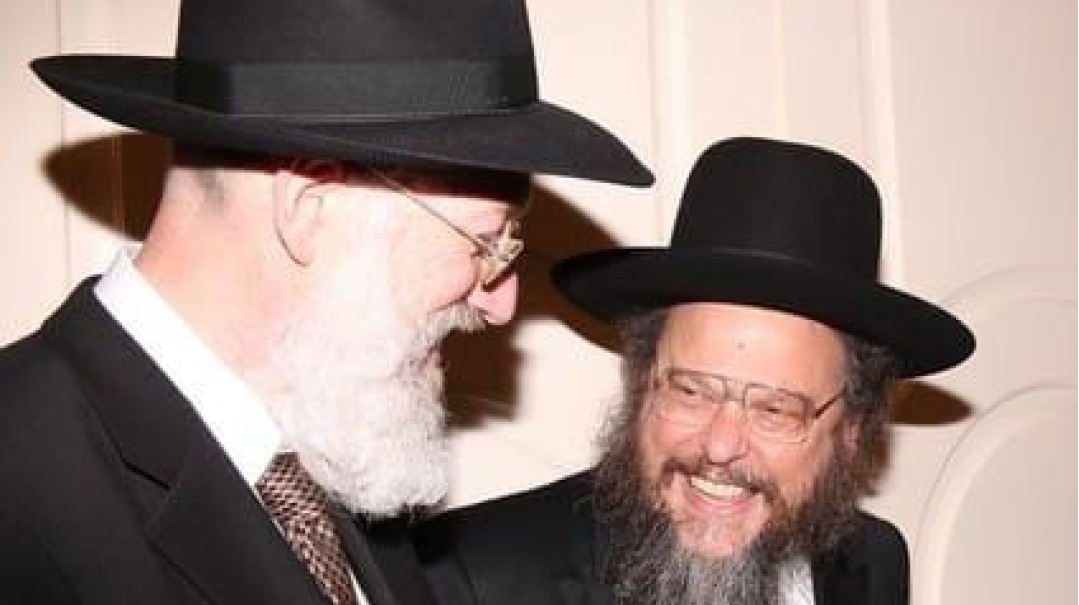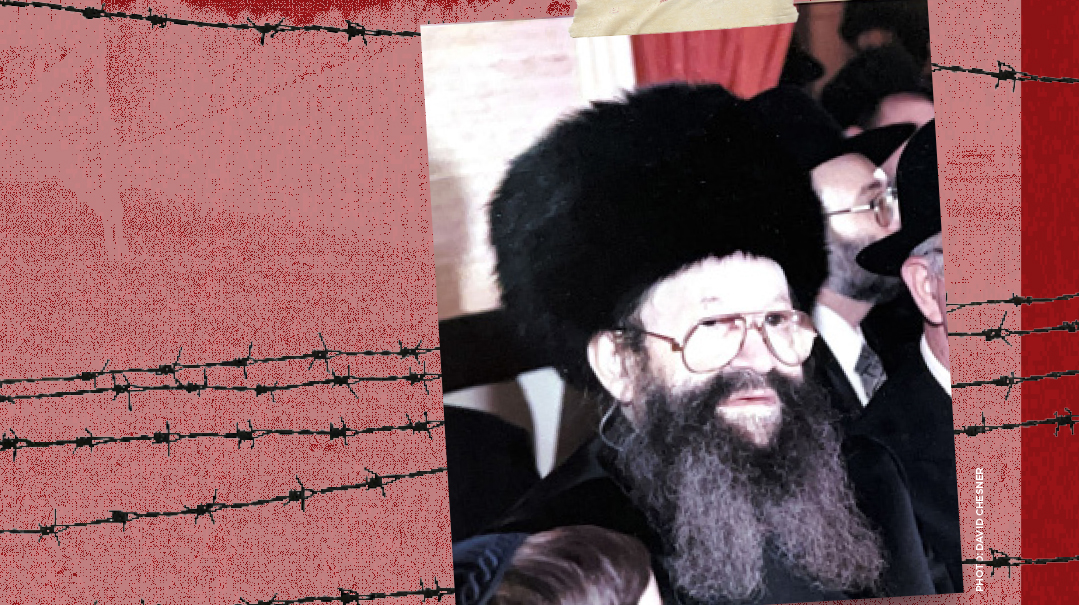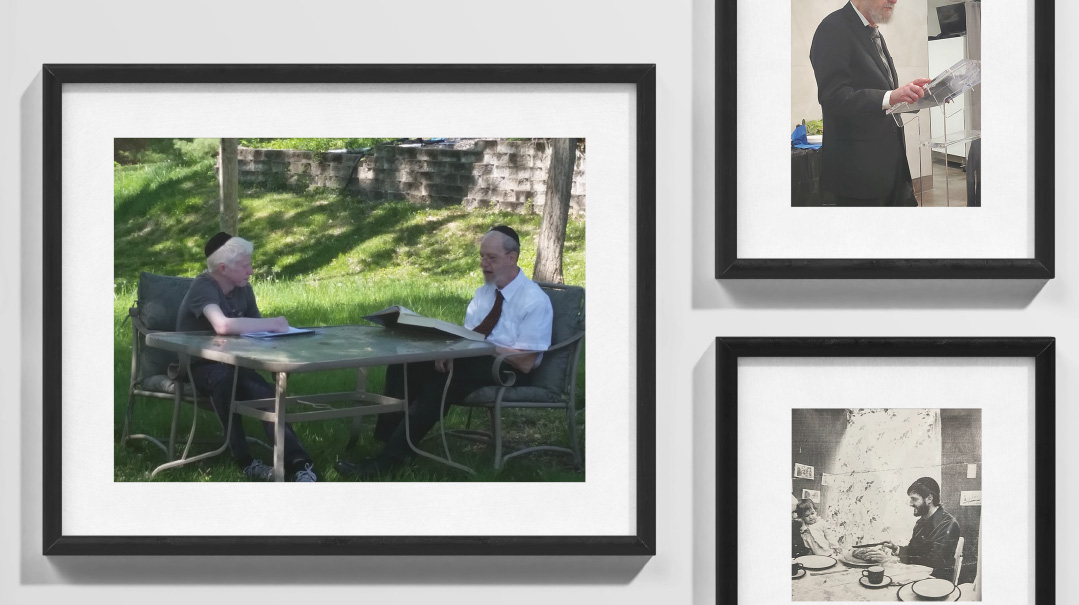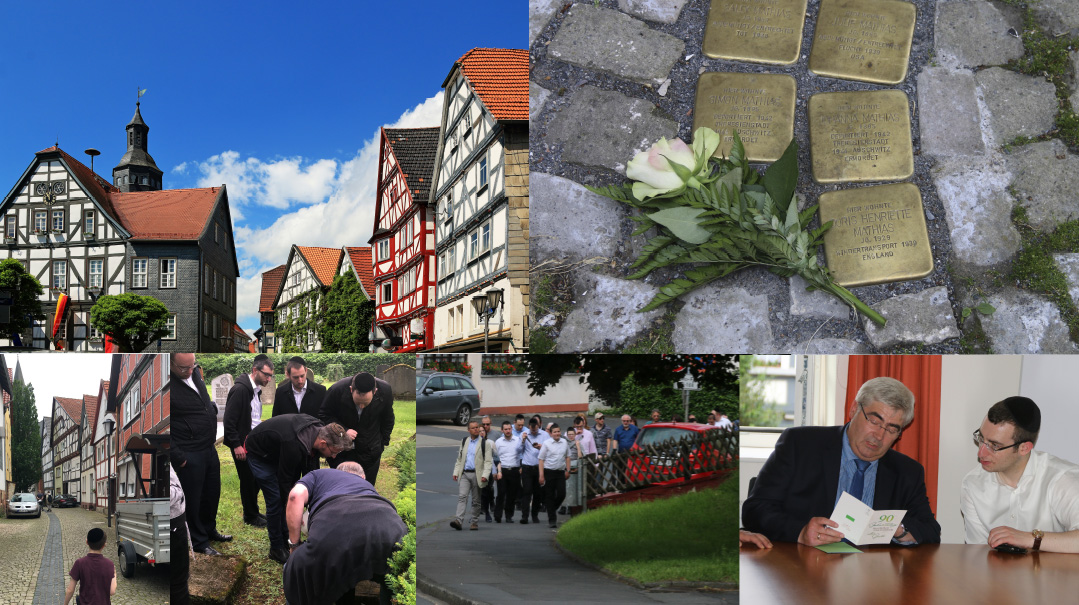Holy Smokes
| October 8, 2024“Rabbi, I want to tell you a story that happened to me when I was boy, growing up in Eretz Yisrael”

Yoseph meandered around the front of the synagogue last Yom Kippur. It was after Mussaf, at the break. The rabbi — my husband — was sitting at his table in the far-left corner of the shul. He was in no hurry, as his usual custom was to recite Tehillim between the Tefillos.
The congregants understood that this was a good time to come up and share something, to spend a little time with him, perhaps to speak of lofty issues that disturbed peace of mind, a struggle, or inner conflict. Yom Kippur has this quality to it — it makes us introspective, forces us to engage in some soul searching.
Yoseph was waiting for the rabbi to finish his whispered conversation with another member. He kept looking at his hands, tried to stop them from relentlessly tugging at something, a siddur, a machzor, the white velvet cloth that covered the bimah. Finally, he put them into his pockets and waited.
At last, the rabbi called him over. “What’s the matter, Yoseph?” He gestured to him to pull up a chair. “On such a beautiful day, filled with kedushah, why do you look so troubled? How can I help you?”
“Rabbi, I need to tell you something…”
“Go ahead. I want to hear.” The Rabbi spoke softly, wondering what prompted this usually reticent man to come forth and speak to him.
“Rabbi, I want to tell you a story that happened to me when I was boy, growing up in Eretz Yisrael.”
But when Yoseph looked at the Rabbi’s expectant face, he seemed to lose courage. His cheeks blanched and he removed a white handkerchief from his jacket pocket to wipe his brow, and then the corners of his mouth. He cleared his throat and in barely a whisper, he began:
“When I was young,” he wheezed, “we had a kindly neighbor with whom my family struck up a friendship. Berel was his name. He was a mild-mannered man who lived alone. I don’t recall that he had ever even been married. By the time we knew each other, Berel was already well into middle age.
“Now Berel had his habits…” Cough, wipe. “But they weren’t offensive in any way.” Pause. “I never knew him to gamble, smoke, or drink. He wasn’t one for picking fights or gossiping. A nice, friendly man, you might say.
“Now Berel was not a religious person. He kept none of G-d’s commandments. But that did not make him disrespectful. In fact, quite the contrary. He was one of the most respectful people I have ever known, always greeting us with the salutation of the day, be it a Shabbos or a Yom Tov. He might not have kept the traditions himself, but he did not seem to mind that we did. He accepted our mishloach manos on Purim and wished us a freilechen Chanukah, though we never saw a menorah in his window. He would smile warmly when we kids brought him our gift of fresh shemurah matzah every Pesach, though there seemed to be no Pesach preparations in his home. He declined our invitation to join our Seder. He would not be able to stay up so late, he would say. ‘Enjoy without me!’
“He was our friend. He never caused us a moment of unease.
“Now imagine my surprise, one Yom Kippur morning, when I saw Berel go out onto his balcony with a cigarette in his hand. I was standing by the open doorway, waiting for my father so we could walk together to shul. A cigarette! On Yom Kippur! The holiest day of the year! I could not believe what I was seeing!
“I watched, scarcely breathing, how Berel slowly took out a match, struck it against the wall, and, with some very precise puffs, lit up the end of his cigarette. So completely focused was he on what he was doing, he did not even notice me, the 11-year-old son of his neighbor, staring at him in disbelief.
“He put the cigarette to his mouth and drew on it, holding the smoke inside his cheeks. Then, when he exhaled, he closed his eyes. Oddly, he did not even seem to enjoy it. I mean, if you are going to defile G-d’s holiest day, at least take some pleasure doing it. But no! His face was a frown, bitter and forlorn. I continued to watch as he took three or four puffs, maybe more, and then, inexplicably, he stopped.
“Now if that was not strange enough, I saw Berel wearily walk over to the balcony railing and lean over. The cigarette he held in his hand, a swirl of forbidden smoke rising from it. A few seconds later, I watched as he gently tapped the tip of the cigarette and stared, mesmerized, as the benign breeze carried the fluttering ashes that seemed to rise up from him, surround him, and then slowly float to the ground. In Berel’s eyes, even I could see, was someone lost and sad. I could not understand it at all.
“I liked Berel, a lot. So I tried very hard to forget what I saw. But I was troubled. Berel didn’t even smoke! Why Yom Kippur?
“That night, after we had broken our fast, I approached my father. When I finished relating what I had seen, my tall, handsome father — who was sitting at the head of the table, still wearing his white linen kittel — straightened his back, pulled his shoulders up, and took an unhurried deep breath. I saw his eyes turn from me and become cold. Immediately I regretted broaching the subject.
“At last, he turned to me, his eyes wet and full. ‘Never judge, Yoseph. Never judge!’ That was all he said, before turning his attention to something else. I walked away from the dining room table, my head sunk in shame.
“Now the following year, I waited again at the same doorway. To my astonishment, Berel came out at the exact same time. I went cold, desperately wanting to look away, to pretend it was not happening. I bit my tongue to keep from crying out for him to stop. I remembered my father’s admonition to me from the year before. I tried so hard not to judge, but it colored my day dark and gloomy, even though the sky was blue and the sun shone hot and fiery.
“I watched — I couldn’t not watch — as my friend Berel repeated the entire exercise. He had the same look in his eyes as he stared at, but did not seem to see, the ashes twirl around him in the soft breeze.
“I did not know what to make of it. This was a ritual. An annual ceremony of some sort. But Berel was not one to go on rampages. I had never even seen him argue, not with anyone. A rare thing in the Jerusalem of my youth.”
Yoseph allowed himself a little chuckle.
“I decided to stand at the doorway every year to watch my kindly neighbor’s annual, semi-public desecration of the holiest day in the Jewish calendar.
“By the time I was 19, I had been a silent witness for almost a decade. I was now a soldier in the Israeli army. I understood responsibility. I understood risk. I felt that surely now I would be allowed to understand Berel and his little performance that ran afoul of the sentiment of the day. I decided to ask him myself at the next opportunity.
“Before long, we found ourselves walking down our street together. We bantered for a bit. I steered the conversation, forcing myself the courage to articulate the question that had resided in my soul for so long. My regret was instant when I watched his face turn from me, his eyes far away. He took his time, composing himself — as though searching for a way to convey the intensity of the heat within him, without letting that heat burn me.
“ ‘I’ll tell you what it’s all about,’ he said. ‘Don’t mind me. I’m an old man now. But I was around your age when they came for us. They herded us into the cattle cars. I do not need to tell you of the trains and the camps. For that, you can and must read the available literature. We all suffered a collective fate. The trauma and the grief lie as an unbearable weight upon the chests of our people.
“ ‘Yet for each of us, there is a personal tale, unlike any other. This is mine. And since you asked, I will share.
“ ‘They put me in the sonderkommando — that group of unfortunates whose job it was to place the dead into the crematoria and then shovel the sacred ashes out into the fields and lakes nearby.
“ ‘It was Yom Kippur when my town’s transport was led to their deaths. On the holiest day of the year, I fed my parents, my siblings, uncles, aunts, cousins…’ He paused. ‘Even my teachers… into those ovens. I decided there and then that there is no G-d, for how could there be a G-d that allows for such horror?
“ ‘Every year, on the anniversary of the death of my village, I stand on my balcony and call out to the ether, “G-d, I do not know if you exist, but if indeed You do, then for all those I burned that day, this is my Kaddish.” I tap the tip of the cigarette and watch as the ashes spiral in the wind. You see, Yoseph, this is my Kaddish. It is the only Kaddish I can say.
“ ‘Forgive me.’ ”
Yoseph’s voice had become stronger and louder with every sentence.
“Rabbi, please, tell me, was he wrong? Was I wrong? Can anybody judge Berel?”
But the rabbi found himself unable to answer. A large lump had formed in his throat. Slowly, he shook his head.
“As I thought,” concurred Yoseph. “Only he who dares enter Berel’s treasury of ghosts can possibly judge him, right?”
The rabbi, his face wet, nodded softly.
And with that, Yoseph meandered off.
Ester Zirkind is a teacher, Chabad shluchah, writer, and published author in Toronto, Ontario.
(Originally featured in Mishpacha, Issue 1032)
Oops! We could not locate your form.







